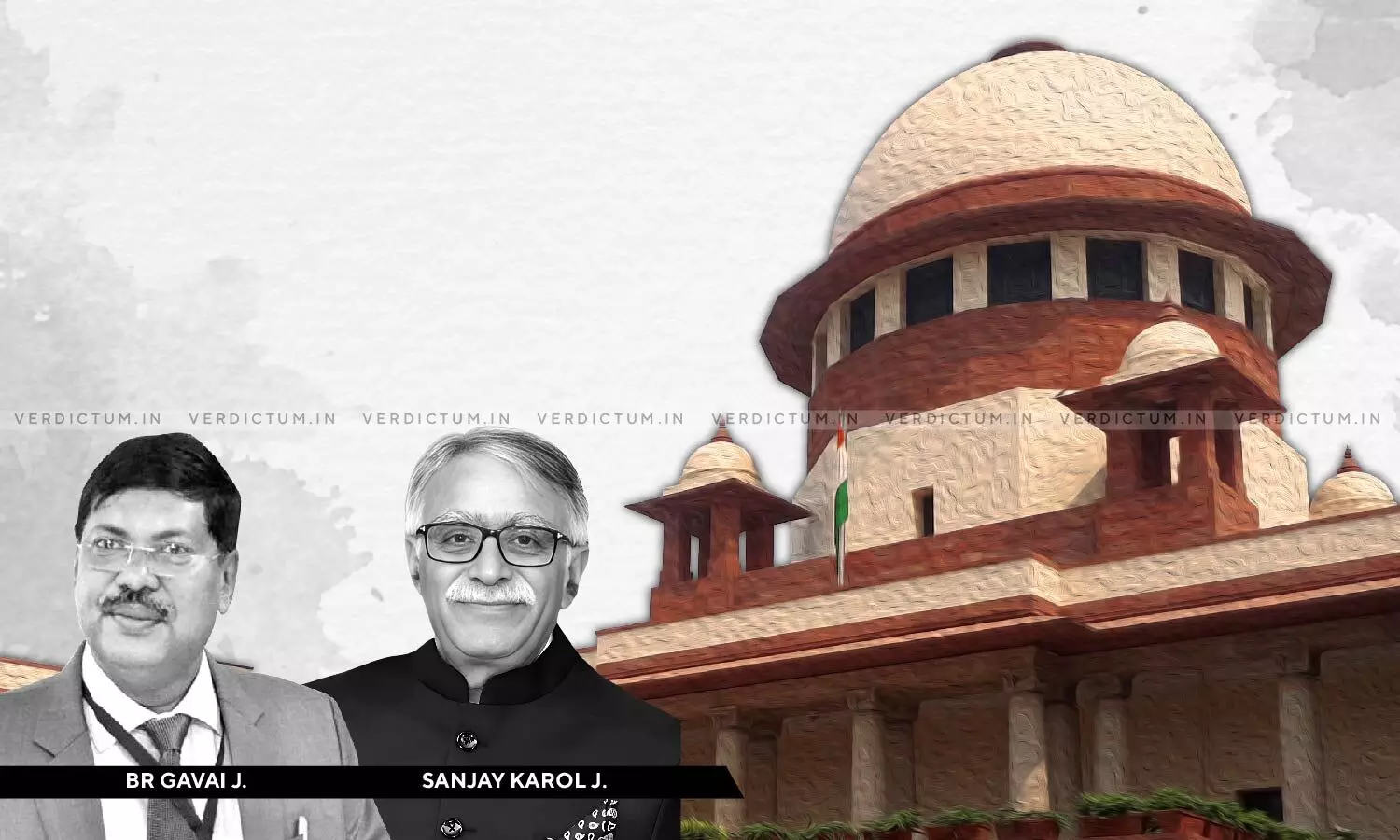
Entire Necessity For Holding TIP Can Arise Only When The Accused Are Not Previously Known To Witnesses: SC Reiterates
 |
|The Supreme Court has reiterated that the entire necessity for holding a Test Identification Parade can arise only when the accused are not previously known to the witnesses.
The Court noted that the whole idea of a test identification parade is that witnesses who claim to have seen the culprits at the time of occurrence are to identify them from the midst of other persons without any aid or any other source.
The bench of Justice BR Gavai and Justice Sanjay Karol made this observation while quashing the judgments of conviction and sentence imposed on a murder accused.
Advocate Dharmendra Kumar Sinha appeared for the appellant-accused whereas Senior Advocate V. Krishnamurthy appeared for the State.
The prosecution’s case was that Panneer Das (A-1) was having a business relationship with the deceased. Since certain disputes and business rivalry emerged between the two, the former harboured a grudge against the latter. Resultantly, he along with A-3 hatched a conspiracy to murder the deceased and through the help of accused-appellant (A-2), killed the victim.
After the investigation, the Trial Court, convicted all the accused and sentenced them to a term of life imprisonment.
The High Court, by disbelieving the testimonies of the prosecution witnesses, repelling the case of conspiracy, acquitted A-1 and A-3 on all counts and on the basis of identification of A-2, upheld the conviction and sentence with respect to the offence punishable under Section 302 of the Indian Penal Code.
The Supreme Court observed that “There is no material to indicate that A-1 or A-3 hired the services of A-2 for murdering deceased Purushotaman. Further, there is no material indicating the accused to have murdered the victim with a sickle, the alleged weapon of offence. No tell-tale signs or evidence, be it of any nature, scientific or otherwise, is on record, even remotely linking the convict to the crime.”
On the TIP process that was conducted in this case, the Court noted that if the identity of the accused was already in the knowledge of the police or the witnesses, then where would the question of conducting the identification parade arise.
The Court remarked that the investigation parade does not hold much value when the identity of the accused is already known to the witness.
“In the present case before us, we find neither the chain of evidence to have been completely established nor the circumstances, conclusively pointing towards the guilt of commission of crime by the Appellant. The prosecution has failed to prove its case beyond reasonable doubt.”, the Court noted while setting aside the murder conviction.
Cause Title- Udayakumar v. State of Tamil Nadu
Click here to read/download Judgment